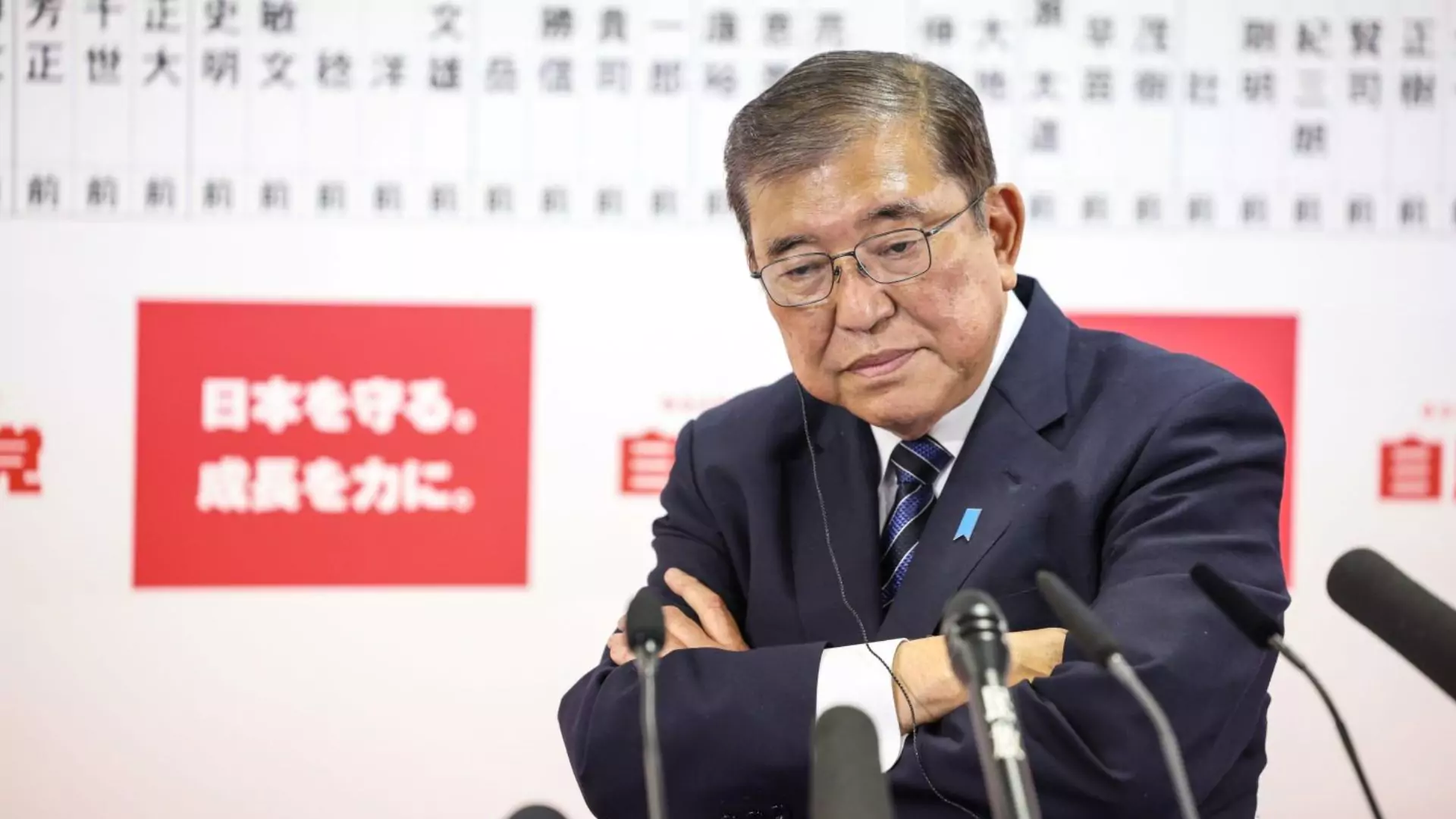Japan’s political landscape was thrown into disarray on Monday following a striking electoral blow to the ruling coalition, as voters expressed discontent over surging prices and a recent funding scandal. The unexpected result leaves the ruling Liberal Democratic Party (LDP) and its junior partner, Komeito, scrambling to secure a majority and form a stable government. Party leaders now face days of challenging negotiations to establish a viable coalition that can guide Japan forward in these uncertain times.
Election Night Shock for LDP-Komeito Coalition
The ruling LDP, together with Komeito, faced a sharp decline in support, marking their worst performance since 2009. While they previously held a robust 279 seats, they managed only 215 in the recent election—well below the 233 seats needed to maintain their majority. This electoral setback highlighted growing dissatisfaction among voters, resulting in significant gains for the main opposition, the Constitutional Democratic Party (CDP), which expanded its seat count from 98 to 148.
Prime Minister Shigeru Ishiba acknowledged the tough verdict from voters, telling NHK, “They had expressed their strong desire for the LDP to do some reflection and become a party that acts in line with the people’s will.” Ishiba, who took office only a month ago, is now tasked with navigating a turbulent political landscape and restoring confidence in the government.
The Fallout from the Funding Scandal
The election outcome was compounded by a major funding scandal that has plagued the LDP for months, undermining public trust in the ruling party. Two cabinet members lost their seats, along with other candidates implicated in the alleged slush fund scandal, which had further tarnished the LDP’s approval ratings. As public outrage over the scandal intensified, the election served as a clear signal of voters’ disapproval, leaving the LDP leadership with serious challenges ahead.
Economic Instability Adds to Political Tensions
The uncertainty surrounding the coalition’s future triggered a slide in the yen, which reached a three-month low against the dollar on Monday. Financial markets reacted to concerns over a prolonged period of political and economic instability. The chair of Japan’s influential business lobby, Masakazu Tokura, emphasized the need for stability: “We strongly hope for policy-oriented politics through the establishment of a stable government centred on the LDP-Komeito coalition,” he stated.
As Japan’s economy grapples with inflation and rising living costs, businesses and investors are looking to the government for reassurance. The gridlock in parliament is causing apprehension about Japan’s ability to tackle these economic challenges effectively in the short term.
Ishiba’s Gambit and the Future of the Coalition
Ishiba’s decision to call an early election, despite his party’s involvement in a major scandal, is now under scrutiny. Many analysts argue that Ishiba’s gamble to strengthen his mandate backfired, leaving the LDP in a weaker position than before. Tobias Harris, founder of the political risk advisory firm Japan Foresight, noted, “Whether or not Ishiba resigns as LDP leader today, it seems unlikely that he will survive to lead a new government as prime minister … although it is possible he could stay on as caretaker.”
In light of the coalition’s weakened state, Ishiba is expected to pursue a third-party alliance to maintain a working majority. Talks may involve MPs from the centre-right Democratic Party for the People or the populist Japan Innovation Party. However, the fragmented nature of Japan’s opposition parties, ranging from conservatives to communists, complicates any efforts to establish a united opposition front.
The Rise of the CDP and Opposition Aspirations
The CDP emerged as the biggest winner in this election, with leader Yoshihiko Noda seeing the results as a clear indication that the ruling coalition has lost its mandate. Speaking at a press conference, Noda said, “This is not the end, but the beginning,” and expressed his party’s intention to collaborate with other opposition groups to work toward a change of government.
While the opposition parties share a common desire to unseat the ruling coalition, their varying policy agendas make it challenging to form a cohesive alternative. Analysts expect that these differences will prevent the opposition from uniting under a single coalition, although CDP’s recent success gives it considerable leverage in shaping the opposition’s future.
Countdown to Coalition Formation Amid Economic and Regional Challenges
Under Japan’s constitution, political parties have a 30-day period to form a coalition government, though pressure is mounting for a swift resolution. The prolonged gridlock is coming at a critical time for Japan, as the country faces economic concerns, regional security threats from North Korea and China, and the impending U.S. presidential election. The political instability leaves Japan in a vulnerable position, with mounting domestic and international challenges that demand decisive leadership.





















